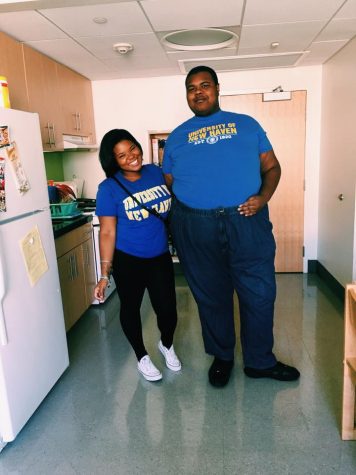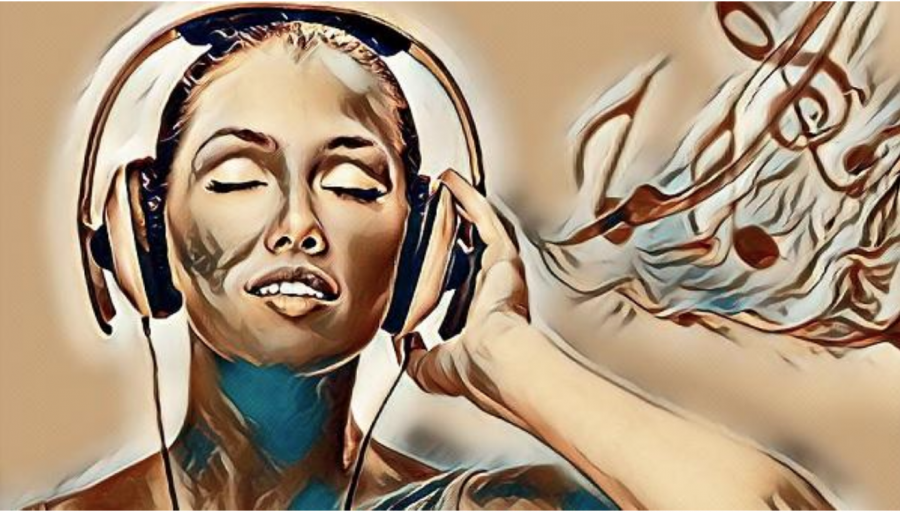Music and Mental Health
Everyone has their daily hobbies that keep them sane and brings them joy. Some people find it in video games, for others it is literature. As for me, it is my love for music. From a young age, you would always see me with headphones connected to whatever popular media device was around at the time – Walkman, CD players, mp3 player to the iPhone – playing music for hours upon hours.
I remember when the iPhone came out in 2007, and the creators, critics, and the public boasted about how this phone allows one to take photos, watch videos, and play music. However, almost ten years later I find that I only do the latter 98 percent of the time.
It is a daily routine for me. Putting on my headphones, and pressing play to various songs and albums that will fit into the soundtracks of my activity or mood. If it is Janet Jackson, I am probably in my room or the kitchen alone mimicking choreographed dance moves in a corny manner. If it is Sade, it is perhaps a Sunday where I am unwinding. If it is Mariah Carey or Christina Aguilera, then I am probably lip-syncing or belting for my life. Moreover, if it is Mary J. Blige, I am bound to be in my feelings, even if I was not previously.
My music taste expanded more as I got older in part to the rising convenience of the internet as the Aughts progressed. When I was five or six years old, my go-to artists were Destiny’s Child, Jennifer Lopez, Janet Jackson and 3LW – I had the biggest crush on Adrienne Bailon. By the eighth grade, I became fans of writer Neil Shah labels “white A-list arena-pop stars” like Britney Spears, Kylie Minogue and Madonna, alternative rock artists like John Mayer, Alanis Morrisette and Paramore and British neo-soul singers like Amy Winehouse and Joss Stone.
I have found listening to music as more than a hobby. I have come to learn that is therapeutic, almost like medicine, for me whether I am getting up early in the morning or if I need a peace of mind from a bad day or moment I might have. The fact that the second I put on my headphones I can block out the world, my surroundings, and lose myself to the sound of the beat, the drum or the rhythm makes me feel so relaxed/happy. My troubles instantly go away. I have, and still go through, many hardships; primarily depression from childhood bullying or periods of self-doubt on whether I’m going to make it in my dream profession.
I play “Beautiful” by Christina Aguilera, to assure myself that I am amazing just the way I am. I put on “Breakaway” by Kelly Clarkson, as I hope to leave small-town Long Island, as I never felt I belonged there, and be in Hollywood and in the entertainment industry. I always try to listen to JoJo’s 2004 song “Keep On Keepin’ On” as words of encouragement to play the card I’ve been dealt; that I must “[I] gotta work with what [I’ve] got a and someday [I] will fly.”
Music is even with me subconsciously; my brain feels like an FM radio constantly turning to the next station while my memory is 90 percent lyrics. And I am not the only one who feels this way.
A 2014 study conducted by Nielsen’s Music 360, found 93 percent of the U.S. population listens to music, spending more than 25 hours each week jamming out to their favorite tunes. 75 percent of Americans say they actively choose to listen to music, which is more than they claim to want to watch TV (73 percent) actively. Americans listen to music in conjunction with being in a car, doing chores and working. Elite Daily also reported ways that music listening can have a positive impact on your mental health. Reduction of stress levels, decreasing depression, boosting of memory power, insomnia relief, and recovery from working out have been some of the positive outcomes of avidly playing music.
Clark Smith, a junior at the University of New Haven, plays music when doing a casual activity like walking between destinations, eating or as a coping skill when upset.
“Rock the Boat” [by Aaliyah] is my angry song, for example,” Smith stated. “I’m more likely to be enjoying my favorite songs when I’m not in a very bad state. Music is central to my everyday life. I am music industry major, a musician, and a dancer. I’m surrounded by music more often than I’m not.”
“In an average day, I listen to music at least 6 hours a day, and at least 40 hours a week. If I am not in class, or in a meeting, I am listening to my music! I listen to my music as I walk around campus, when I’m in my room, when I drive, and when I do my homework,” Psychology major Giovanni-Marie Roper said. “It helps me to focus and clear my mind at the same time. I have many different playlists that corresponds to my moods. For example, I have an everyday happy playlist that I listen to on repeat about every day. I also have playlists with more chill music that I listen to if I am feeling a little down. Somehow music helps me to get or stay in a good state of mind. I always find something to relate to in a song whether it be the music, or the lyrics which helps a song resonate with me more.”
When music gets into your bloodstream, you can’t escape the feeling it gives you. If you can move to it and relate to it, it can only do good. So to alleviate that feeling you get on a Monday morning, don’t forget to press play.

Khaaliq Crowder is a junior studying communications (journalism) with a minor in black studies. He is a contributing writer, mostly covering the Arts &...





